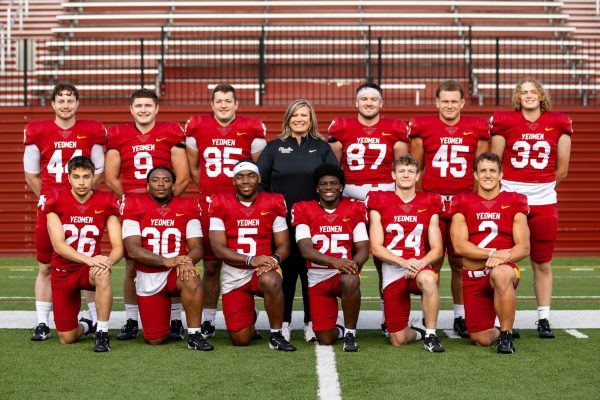First-Year Athletes Find Team Support Despite Lack of Proper Preseason
This year, first-year athletes who arrived in September were thrown into a situation where, without classes or Orientation to keep them busy, sports were all they had to connect with campus. For these students, the already difficult transition from high school to college was accentuated by the extended lack of structure and sparsity of students to befriend in their early days.
Isa Morales, a first-year on the women’s soccer team, felt that the adjustment was quite tough.
“I didn’t know anything beyond the soccer fields, so I felt really lost,” she said. “I didn’t know how dining worked or where to seek help for my different problems.”
Usually when athletes come to campus, they have a couple of weeks of training and preseason before the general campus population comes and classes start. However, this year classes didn’t start till Oct. 4, which meant that athletes who were on campus between summer and fall went through most of that time without normal semester functions, like dining and housing, operating as usual.
While the transition was tough, first-year Morgan Cianfichi found that the support of her team really helped her navigate her first few weeks.
“Once I got on campus, my team made me feel very grateful and welcomed. I’m really grateful that my teammates showed me around and made sure that I was prepared for classes to start,” she explained.
Cianfichi emphasized how her teammates taught her, as well as her fellow first-years, about the dynamics at Oberlin. Salem Holter, a first-year field hockey player, talked about the experience of understanding Oberlin from their teammates before officially going through Orientation.
“It was very funny, having already learned the structure by which Oberlin works, but I enjoyed the actual experience of going through it with other [first-years],” Holter said.
For Morales, Orientation was an opportunity to build on her knowledge of campus with proper guidance on academic life at Oberlin.
“In some ways, I felt really cool because I knew where the buildings were and how the dining system worked, but at the same time, I was equally as lost as my classmates as to how academic life worked in college,” she said. “It was very fun to learn so much about what the school offers.”
Athletes are notorious for juggling their social and academic lives — balancing daily practices, games, and lifts, while staying on top of classes and making time for themselves. For first-years, the intensity of this balancing act has been a jarring experience. Both Holter and Morales described the month leading up to the start of classes in October as similar to a summer camp: a worry-free environment where they could focus on following their passion for their sport. With the introduction of classes, however, they have found that being a collegiate athlete is quite different from their initial impressions.
“The adjustment of having classes during the season has been a bit rough, especially due to the fact that I’m missing classes early on in the semester because of away games,” Morales said. “I feel like this adjustment is a really difficult one because, all of a sudden, I have a full curricular workload and many more responsibilities that I have to balance with soccer.”
Cianfichi believes the first week of classes improved her ability to balance her day-to-day activities as a college athlete.
“Being in season while starting school has definitely been a challenge, but I have learned how to balance my academics and soccer,” Cianfichi said.
Despite a rough start to the academic year, first-year athletes have found support in their teams and practices. With a little perseverance and some more guidance, the latest class of rookies will be ready to take on their new responsibilities at Oberlin.






